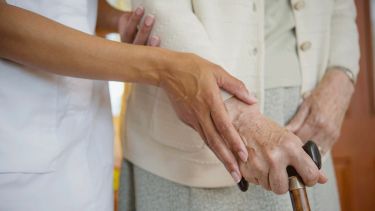The University of Sheffield’s Centre for International Research on Care, Labour & Equalities (CIRCLE), and a number of its partners, have been awarded a grant from the The Arts and Humanities Research Council (AHRC) and the Economic and Social Research Council (ESRC), to encourage unpaid carers to record their weekly hours of caring in the census.
Dr Kelly Davidge, Sustainable Care Programme Manager for CIRCLE, said: “We’ll be talking to people in all walks of life who support someone they know to manage daily life and to help people think about whether they should ‘tick the box’ as a carer. We’ll be recording videos of people talking about caring for others – their elderly parents, their disabled child, their husband who had a stroke, their neighbour who needs help with daily tasks, their partner with MS – the list goes on.
“We hope others will recognise these stories in their own lives, and tick the box to record the help they give to others in the census. More accurate statistics mean better support for unpaid carers and more awareness of the vital support they give to family, friends and neighbours, because of a long term illness, a disability or for other reasons,” said Dr Davidge.
More accurate statistics mean better support for unpaid carers and more awareness of the vital support they give [...].
“In this project, we’ll also show some of the ways counting carers in past censuses – first in 2001 and then in 2011 – changed social awareness of caring and influenced local or national policies on care. We’ll be interviewing researchers and charities about how the census has made a difference for carers, to show why reliable information on the number of carers matters, and talking to people in government and local authorities about how the census changes our understanding of how people care for each other in their daily lives.”
If you support someone in doing practical things; like getting dressed, taking a shower, or preparing a meal, helping them use public transport or giving them a lift to get to a hospital appointment, doing their shopping or helping them do their washing and cleaning, you should fill in the census as an unpaid carer.
“It could be helping them manage money and bills and to deal with paperwork,” Dr Davidge said. “It can mean keeping them company, supporting them in tough times when they feel anxious or alone, or making sure they get some exercise, fresh air and regular meals.”
Keep an eye on your census 2021 letter arriving in the post. You must complete the census online, on Sunday 21st March or ‘as soon after as possible.’
To take part in our video campaign, or simply talk to us about the 2021 census, email Dr Kelly Davidge at sustainablecare@sheffield.ac.uk.

